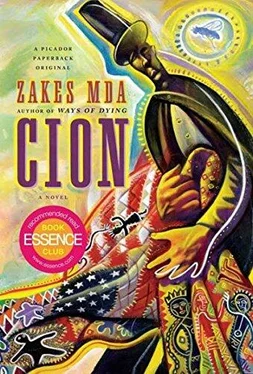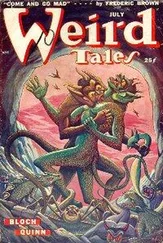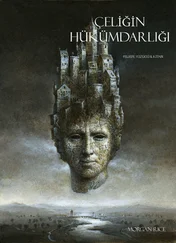Later I hear from the women at the Center that Ruth does not send her quilts to the auction because she does not talk to them anymore. When she banned Orpah from ever touching her sewing machine Orpah went to learn quilting at the Center. Ruth heard about it and quarreled with the women there. But they continued to teach Orpah even after her mother threatened never to send her quilts to the auction again. It was Orpah who gave up the lessons on her own because she felt her tutors were just as traditionalist as her mother in their approach to quilts, although they were not rabidly opposed to anyone who wanted to dabble in the newfangled art quilts.

If I thought I had regained Ruth’s trust I was wrong. She gradually gets disillusioned with me because of the negative influence she claims I have on her children: approving Orpah’s wayward behavior; encouraging Obed to follow his heart into Native American shamanistic practices; going to the local church, which I didn’t know she was boycotting; arranging to take quiltmaking lessons with the women at the Center; and inventing silly names such as “Ayatollah Ruth” and “A Taliban in the House,” which both Obed and Orpah are calling her behind her back. I am ashamed of this last one. I never thought it would reach her ears. But it did, thanks to Obed’s loose tongue.
What crowned her disillusionment with me more than anything else was her discovery of Obed’s misadventure at the sorority house and his arrest. You see, Beth called to remind me of the painting job that Obed was supposed to do as soon as the winter was over, and to find out about the kind of paint that was needed and the cost since she was working on the budget. I was at the Center at the time, so Ruth received the call and started to probe, excited that Obed had finally got around to doing something useful with his life. She was shocked to discover that in fact he would not be painting the house for a fee, but to pay for his crime.
“They done lock my baby up and you don’t tell me nothing about it,” Ruth said as soon as I set foot in the kitchen where she was heaving over a steaming pot.
I couldn’t lie. I had to confess the whole story. I assured her that there was nothing to worry about anymore because everything was sorted out through mediation. Her baby would therefore not go to jail. But that was not good enough. She felt that I had betrayed her when she thought we had developed a bond between us. It showed that one could never trust people from Africa. They could easily sell one just as they sold the African Americans into slavery.
When Obed returned from wherever he had been she welcomed him with: “Where were you at, boy? Fondling girls’ breasts?”
He glared at me accusingly. I shook my head to say it was not me.
“You don’t toy with ghosts, boy. Especially them ghosts that died violently like Nicodemus died,” said Ruth as she walked out of the kitchen. “God knows what’s gonna happen to you, boy,” her voice continued from her workstation. “You don’t amount to no good with them ghosts and Indian witchcraft.”
I told him about Beth’s call. His face brightened when I mentioned her name. He lamented that there were three whole months before he could paint the three-story building. I never thought I would see the day when Obed was looking forward to some labor. The very Obed who would not even split firewood for his mama!
“If it’s any consolation,” I said, “I admire you for trying to explore the culture of your Native American people. But you need to learn about these things…consult people who know…serve periods of apprenticeship under genuine shamans and hand tremblers and scryers…so that you don’t turn a great culture into some buffoonery.”
“You didn’t say none of that to Mama. You didn’t tell her it’s a good thing.”
“From what I have come to know of your mama, no one tells her anything.”
“She likes you, man. Thinks you’re the best thing since sliced bread.”
“Not after my foolish outburst about Orpah’s drawings and now the secret that I kept from her about your arrest.”
“Still, she likes you. If I didn’t know her no better I’d say there’s a thing between you two.”
I burst out laughing. What a preposterous thought! I remembered touching Ruth on the shoulder one day when she had said something funny and I was laughing. She froze and gave me a stern look. I withdrew my hand quickly. That is the problem: I come from a place where people are physically demonstrative.
I had not been aware that Ruth could hear every word of this conversation from her workstation until she brought it to my attention by hollering that it was exactly as she had suspected: I was leading her children on a path to hell.
That was the second crime I had committed against her in one day.
Both the quiltmaking and the church-going crimes were committed through my gross ignorance of the politics of the village.
Apparently Ruth heard that I had expressed an interest in quiltmaking and the women at the Center had offered to teach me. They were excited about the whole idea. Although quiltmaking was traditionally a woman’s occupation, at the Center they had begun to introduce two or three men to the art, and one was proving to be very good at it. So I was quite welcome to learn as well, they told me. It did not bother me that Obed was against the idea, and felt that I — a role model and an ascetic votary of my own sacred order of professional mourners — had betrayed him by reducing myself to a common quiltmaker. Ruth, on the other hand, felt betrayed because I was now in cahoots with her enemies — people who interfered in her family affairs by trying to teach Orpah how to quilt when she, as Orpah’s mother, had decided the “girl” must never touch a sewing machine until she learned to respect the heritage of her people. But through it all I could also see some jealousy, that now she would no longer have the monopoly of her own personal African. I was now going to be Barbara Parsons’ African and Irene Flowers’ African as well.
The church thing was really a result of my curiosity to see what was going on in that little chocolate building by the road. I passed it every time I went to mourn quietly at the graveyard where Kilvert families — the Tablers, the Flowerses, the Mayleses, the Quigleys, the Jenkinses, the Kennedys — sleep in peace under piles of fresh flowers. So, one Sunday I decided to walk into the church.
I was surprised to find only five people, including the pastor, in the church. They must be the owners of the four SUVs parked outside. The pastor was conducting a thirty-minute Sunday school for his flock of four before the service could start. I kept on hoping for his sake that more people would come and fill the five pews on one side and seven pews across the aisle. Even inside, the church was like a dollhouse, with brown wooden panels on the walls. Brown is the color. There was a wall tapestry of Jesus holding a lamb, in shades of brown. Framed pictures of Jesus as a shepherd surrounded by sheep, in shades of brown.
“When will the resurrection come?” the pastor asked his congregation.
“When the trumpet sounds,” they responded in unison. They were reading from the pamphlets they were holding.
“And remember, no one knows when that will be,” said the pastor.
The service began. Sister Naomi played the piano and the congregation sang “He Hideth My Soul.” Another woman stood behind the lectern at the pulpit rolling her eyes to the heavens while she sang above everyone else’s voice. Above the piano too. They all sang in unison and I had never heard such atrocious singing in my life. The pastor punctuated the song with Amens.
Читать дальше













